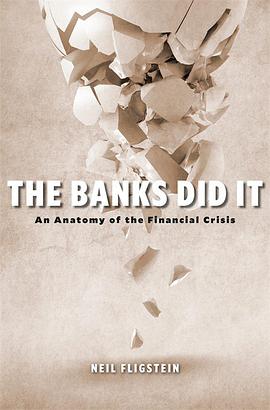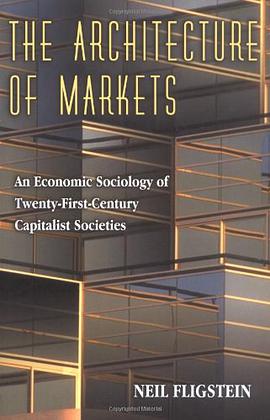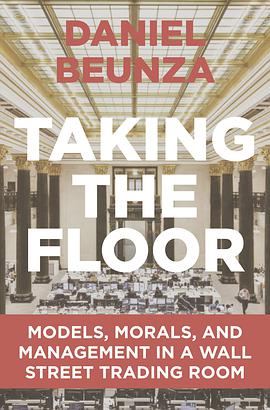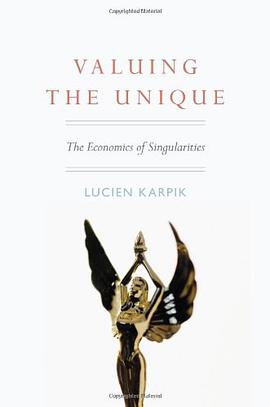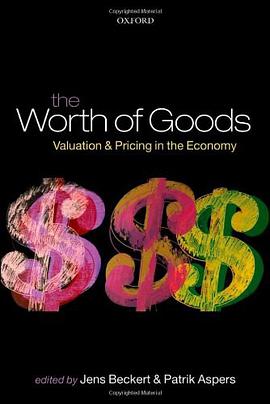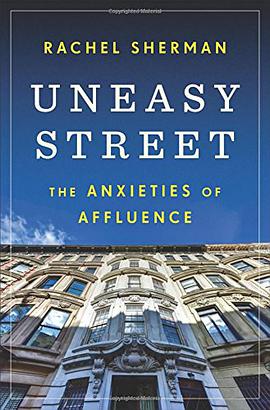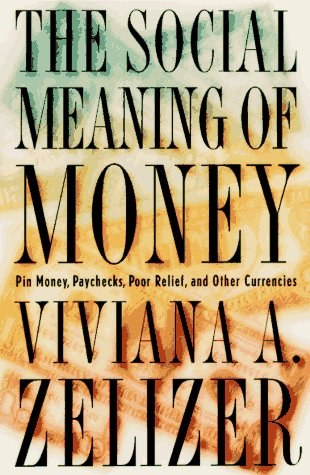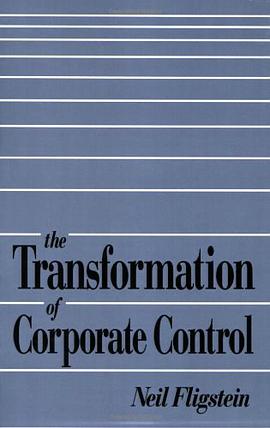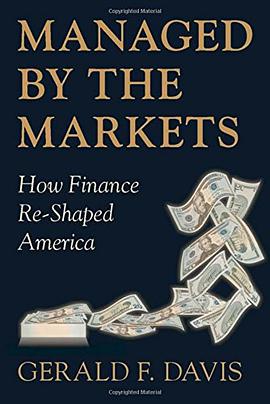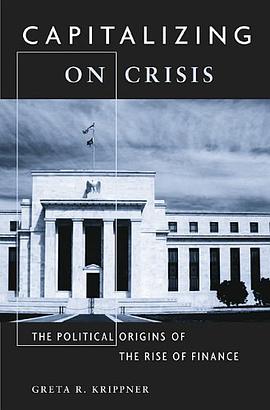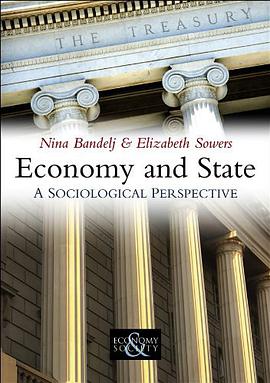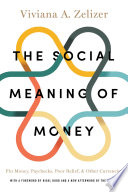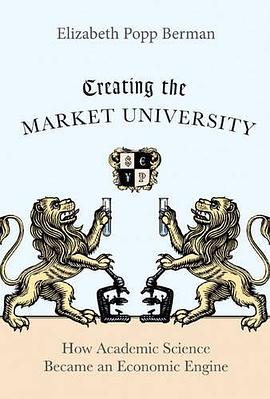经济社会学
Very Important People 豆瓣 Goodreads
作者:
Ashley Mears
Princetion University Press
2020
- 5
Million-dollar birthday parties, megayachts on the French Riviera, and $40,000 bottles of champagne. In today’s New Gilded Age, the world’s moneyed classes have taken conspicuous consumption to new extremes. In Very Important People, sociologist, author, and former fashion model Ashley Mears takes readers inside the exclusive global nightclub and party circuit—from New York City and the Hamptons to Miami and Saint-Tropez—to reveal the intricate economy of beauty, status, and money that lies behind these spectacular displays of wealth and leisure.
Mears spent eighteen months in this world of “models and bottles” to write this captivating, sometimes funny, sometimes heartbreaking narrative. She describes how clubs and restaurants pay promoters to recruit beautiful young women to their venues in order to attract men and get them to spend huge sums in the ritual of bottle service. These “girls” enhance the status of the men and enrich club owners, exchanging their bodily capital for as little as free drinks and a chance to party with men who are rich or aspire to be. Though they are priceless assets in the party circuit, these women are regarded as worthless as long-term relationship prospects, and their bodies are constantly assessed against men’s money.
A story of extreme gender inequality in a seductive world, Very Important People unveils troubling realities behind moneyed leisure in an age of record economic disparity.
Mears spent eighteen months in this world of “models and bottles” to write this captivating, sometimes funny, sometimes heartbreaking narrative. She describes how clubs and restaurants pay promoters to recruit beautiful young women to their venues in order to attract men and get them to spend huge sums in the ritual of bottle service. These “girls” enhance the status of the men and enrich club owners, exchanging their bodily capital for as little as free drinks and a chance to party with men who are rich or aspire to be. Though they are priceless assets in the party circuit, these women are regarded as worthless as long-term relationship prospects, and their bodies are constantly assessed against men’s money.
A story of extreme gender inequality in a seductive world, Very Important People unveils troubling realities behind moneyed leisure in an age of record economic disparity.
The Banks Did It 豆瓣
作者:
Neil Fligstein
Harvard University Press
2021
- 6
A comprehensive account of the rise and fall of the mortgage-securitization industry, which explains the complex roots of the 2008 financial crisis.
More than a decade after the 2008 financial crisis plunged the world economy into recession, we still lack an adequate explanation for why it happened. Existing accounts identify a number of culprits—financial instruments, traders, regulators, capital flows—yet fail to grasp how the various puzzle pieces came together. The key, Neil Fligstein argues, is the convergence of major U.S. banks on an identical business model: extracting money from the securitization of mortgages. But how, and why, did this convergence come about?
The Banks Did It carefully takes the reader through the development of a banking industry dependent on mortgage securitization. Fligstein documents how banks, with help from the government, created the market for mortgage securities. The largest banks—Countrywide Financial, Bear Stearns, Citibank, and Washington Mutual—soon came to participate in every aspect of this market. Each firm originated mortgages, issued mortgage-backed securities, sold those securities, and, in many cases, acted as their own best customers by purchasing the same securities. Entirely reliant on the throughput of mortgages, these firms were unable to alter course even when it became clear that the market had turned on them in the mid-2000s.
With the structural features of the banking industry in view, the rest of the story falls into place. Fligstein explains how the crisis was produced, where it spread, why regulators missed the warning signs, and how banks’ dependence on mortgage securitization resulted in predatory lending and securities fraud. An illuminating account of the transformation of the American financial system, The Banks Did It offers important lessons for anyone with a stake in avoiding the next crisis.
More than a decade after the 2008 financial crisis plunged the world economy into recession, we still lack an adequate explanation for why it happened. Existing accounts identify a number of culprits—financial instruments, traders, regulators, capital flows—yet fail to grasp how the various puzzle pieces came together. The key, Neil Fligstein argues, is the convergence of major U.S. banks on an identical business model: extracting money from the securitization of mortgages. But how, and why, did this convergence come about?
The Banks Did It carefully takes the reader through the development of a banking industry dependent on mortgage securitization. Fligstein documents how banks, with help from the government, created the market for mortgage securities. The largest banks—Countrywide Financial, Bear Stearns, Citibank, and Washington Mutual—soon came to participate in every aspect of this market. Each firm originated mortgages, issued mortgage-backed securities, sold those securities, and, in many cases, acted as their own best customers by purchasing the same securities. Entirely reliant on the throughput of mortgages, these firms were unable to alter course even when it became clear that the market had turned on them in the mid-2000s.
With the structural features of the banking industry in view, the rest of the story falls into place. Fligstein explains how the crisis was produced, where it spread, why regulators missed the warning signs, and how banks’ dependence on mortgage securitization resulted in predatory lending and securities fraud. An illuminating account of the transformation of the American financial system, The Banks Did It offers important lessons for anyone with a stake in avoiding the next crisis.
The Architecture of Markets 豆瓣
作者:
Neil Fligstein
Princeton University Press
2002
- 9
Market societies have created more wealth, and more opportunities for more people, than any other system of social organization in history. Yet we still have a rudimentary understanding of how markets themselves are social constructions that require extensive institutional support. This groundbreaking work seeks to fill this gap, to make sense of modern capitalism by developing a sociological theory of market institutions. Addressing the unruly dynamism that capitalism brings with it, leading sociologist Neil Fligstein argues that the basic drift of any one market and its actors, even allowing for competition, is toward stabilization. The "Architecture of Markets" represents a major and timely step beyond recent, largely empirical studies that oppose the neoclassical model of perfect competition but provide sparse theory toward a coherent economic sociology.Fligstein offers this theory. With it he interprets not just globalization and the information economy, but developments more specific to American capitalism in the past two decades - among them, the 1980s merger movement. He makes new inroads into the "theory of fields," which links the formation of markets and firms to the problems of stability. His political-cultural approach explains why governments remain crucial to markets and why so many national variations of capitalism endure. States help make stable markets possible by, for example, establishing the rule of law and adjudicating the class struggle.State-building and market-building go hand in hand. Fligstein shows that market actors depend mightily upon governments and the members of society for the social conditions that produce wealth. He demonstrates that systems favoring more social justice and redistribution can yield stable markets and economic growth as readily as less egalitarian systems. This book will surely join the classics on capitalism. Economists, sociologists, policymakers, and all those interested in what makes markets function as they do will read it for many years to come.
Taking the Floor 豆瓣
作者:
Daniel Beunza
Princeton University Press
2021
- 8
Debates about financial reform have led to the recognition that a healthy financial system doesn’t depend solely on how it is structured—organizational culture matters as well. Based on extensive research in a Wall Street derivatives-trading room, Taking the Floor considers how the culture of financial organizations might change in order for them to remain healthy, even in times of crises. In particular, Daniel Beunza explores how the extensive use of financial models and trading technologies over the recent decades has exerted a far-ranging and troubling influence on Wall Street. How have models reshaped financial markets? How have models altered moral behavior in organizations?
Beunza takes readers behind the scenes in a bank unit that, within its firm, is widely perceived to be “a class act,” and he considers how this trading room unit might serve as a blueprint solution for the ills of Wall Street’s unsustainable culture. Beunza demonstrates that the integration of traders across desks reduces the danger of blind spots created by models. Warning against the risk of moral disengagement posed by the use of models, he also contends that such disengagement could be avoided by instituting moral norms and social relations.
Providing a unique perspective on a complex subject, Taking the Floor profiles what an effective, responsible trading room can and should look like.
Beunza takes readers behind the scenes in a bank unit that, within its firm, is widely perceived to be “a class act,” and he considers how this trading room unit might serve as a blueprint solution for the ills of Wall Street’s unsustainable culture. Beunza demonstrates that the integration of traders across desks reduces the danger of blind spots created by models. Warning against the risk of moral disengagement posed by the use of models, he also contends that such disengagement could be avoided by instituting moral norms and social relations.
Providing a unique perspective on a complex subject, Taking the Floor profiles what an effective, responsible trading room can and should look like.
新经济社会学读本 豆瓣
作者:
[美]弗兰克·道宾 主编
译者:
左晗
/
程秀英
…
上海人民出版社
2013
- 7
我们要理解今天的经济发展,至关重要的一点是理解社会结构的、制度的、权力的和认知的因素,如何导致经济实践中的多样性。在这本读本里收录的经典研究,提供了检视这些因素的很好的分析工具和理论概念。在中国,社会学正处于复兴的过程中,把这些研究介绍到中国最令人激动的一点在于,我们可以看到这些被证明能够很好地解释西方国家经济现象的方法和理论概念,将会如何来面对中国的经济现象,这些经济现象是当今世界上最为复杂和有趣的。本书中收录的研究展示了如何从网络、制度、权力和认知的理论框架来分析经济现象,通过借鉴这些研究成果,中国的学者能加深我们对社会过程如何影响经济这一主题的理解,同时也将进一步加强中西方社会学者之间的交流。
Valuing the Unique 豆瓣
作者:
Lucien Karpik
译者:
Nora Scott
Princeton University Press
2010
- 7
In this landmark work of economic sociology, Lucien Karpik introduces the theory and practical tools needed to analyze markets for singularities. Singularities are goods and services that cannot be studied by standard methods because they are multidimensional, incommensurable, and of uncertain quality. Examples include movies, novels, music, artwork, fine wine, lawyers, and doctors. "Valuing the Unique" provides a theoretical framework to explain this important class of products and markets that for so long have eluded neoclassical economics. With this innovative theory - called the economics of singularities - Karpik shows that, because of the uncertainty and the highly subjective valuation of singularities, these markets are necessarily equipped with what he calls 'judgment devices' - such as labels, brands, guides, critics, and rankings - which provide consumers with the credible knowledge needed to make reasonable choices. He explains why these markets are characterized by the primacy of competition by qualities over competition by prices, and he identifies the conditions under which singularities are constructed or are in danger of losing their uniqueness. After demonstrating how combinations of the numerous and multiform judgment devices can be used to identify different market models, Karpik applies his analytical tools to the functioning of a large number of actual markets, including fine wines, movies, luxury goods, pop music, and legal services.
The Worth of Goods 豆瓣
作者:
Beckert, Jens; Aspers, Patrik;
2011
- 9
How do we place value on goods - and, importantly, why? Valuation and pricing are core issues in the market economy, but understanding of these concepts and their interrelation is weak. In response, The Worth of Goods takes a sociological approach to the perennial but timely question of what makes a product valuable. Structured in three parts, it first examines value in the broader sense - moral values and how they are formed, and the relations between economic and non-economic values - discussing such matters as the value of an oil spill, the price of a scientific paper, value in ethical consumption, and imaginative value. The second part discusses the issues surrounding valuation in aesthetic markets, specifically wine, fashion models, art, and the creative industries. The third part analyzes valuation in financial markets - credit rating agencies, stock exchange markets, and industrial production. This pioneering volume brings together leading social scientists to provide a range of theoretical tools and case studies for understanding price and the creation of value in markets within social and cultural contexts and preconditions. It is an important source for scholars in economics, sociology, anthropology, and political science interested in how markets work, and how value is established.
Uneasy Street 豆瓣
作者:
Rachel Sherman
Princeton University Press
2017
- 8
From TV’s “real housewives” to The Wolf of Wall Street, our popular culture portrays the wealthy as materialistic and entitled. But what do we really know about those who live on “easy street”? In this penetrating book, Rachel Sherman draws on rare in-depth interviews that she conducted with fifty affluent New Yorkers—including hedge fund financiers and corporate lawyers, professors and artists, and stay-at-home mothers—to examine their lifestyle choices and their understanding of privilege. Sherman upends images of wealthy people as invested only in accruing and displaying social advantages for themselves and their children. Instead, these liberal elites, who believe in diversity and meritocracy, feel conflicted about their position in a highly unequal society. They wish to be “normal,” describing their consumption as reasonable and basic and comparing themselves to those who have more than they do rather than those with less. These New Yorkers also want to see themselves as hard workers who give back and raise children with good values, and they avoid talking about money.
Although their experiences differ depending on a range of factors, including whether their wealth was earned or inherited, these elites generally depict themselves as productive and prudent, and therefore morally worthy, while the undeserving rich are lazy, ostentatious, and snobbish. Sherman argues that this ethical distinction between “good” and “bad” wealthy people characterizes American culture more broadly, and that it perpetuates rather than challenges economic inequality.
As the distance between rich and poor widens, Uneasy Street not only explores the real lives of those at the top but also sheds light on how extreme inequality comes to seem ordinary and acceptable to the rest of us.
Although their experiences differ depending on a range of factors, including whether their wealth was earned or inherited, these elites generally depict themselves as productive and prudent, and therefore morally worthy, while the undeserving rich are lazy, ostentatious, and snobbish. Sherman argues that this ethical distinction between “good” and “bad” wealthy people characterizes American culture more broadly, and that it perpetuates rather than challenges economic inequality.
As the distance between rich and poor widens, Uneasy Street not only explores the real lives of those at the top but also sheds light on how extreme inequality comes to seem ordinary and acceptable to the rest of us.
The Social Meaning of Money 豆瓣
作者:
Viviana A. Zelizer
Princeton University Press
1997
- 8
A dollar is a dollar - or so most of us believe. Indeed, it is part of the ideology of our time that money is a single, impersonal instrument that impoverishes social life by reducing social relations to cold, hard cash. Arguing against this conventional wisdom, Viviana Zelizer, a distinguished social scientist and prize-winning author, shows how people have invented their own forms of currency, earmarking money in ways that baffle market theorists, incorporating funds into webs of friendship and family relations, and otherwise varying the process by which spending and saving takes place.
The Transformation of Corporate Control 豆瓣
作者:
Neil Fligstein
Harvard University Press
1993
- 1
Neil Fligstein challenges prevailing theories of the corporation and proposes a radically new view in which the firm is driven not so much by market forces as by the state and its policies toward business. Fligstein traces the evolution, over the past century, of corporate strategy from an initial emphasis on direct control to one of manufacturing, then sales and marketing, and finally today’s focus on finance.
Managed by the Markets 豆瓣
作者:
Gerald F. Davis
Oxford University Press
2009
- 6
In recent years, we've been rocked by a series of economic jolts, and all of them seemed to revolve around finance. And the most recent, the American mortgage meltdown, has sent shock waves around the world. Managed by the Markets , which won the 2010 George R. Terry Book Award, offers an illuminating account of how finance has replaced manufacturing at the center of the American economy over the past three decades, explaining how the new finance-centered system works, how we got here, and what challenges lay ahead.
Since the early 1980s, Gerald F. Davis shows, finance and financial considerations have increasingly taken center stage, dramatically reshaping American society. Corporations now have an overriding focus on creating shareholder value, while their personnel practices no longer provide secure employment, economic mobility, health insurance, or retirement benefits. Instead, employees must become shareholding free-agents, left to their own fate. Banking has shifted from the traditional role of taking in deposits and making loans to the widespread use of "securitization," turning loans (such as mortgages or corporate debt) into bonds owned by institutional investors. The financial services industry is both more concentrated among large banks and mutual funds, yet more spread out among under-regulated specialists such as mortgage finance companies and hedge funds. And states increasingly act as "vendors" in a global marketplace of law, emulating firms such as Nike, hiring contractors to do much of the work of government.
As a result, individuals and households find their welfare tied to the stock market and the mortgage market as never before. And the turbulence of recent years starkly underscores the dangers of depending too much on financial markets. Written in the spirit of C. Wright Mills' penetrating The Power Elite and White Collar , this brilliant study provides an invaluable map of the finance-driven American society.
Since the early 1980s, Gerald F. Davis shows, finance and financial considerations have increasingly taken center stage, dramatically reshaping American society. Corporations now have an overriding focus on creating shareholder value, while their personnel practices no longer provide secure employment, economic mobility, health insurance, or retirement benefits. Instead, employees must become shareholding free-agents, left to their own fate. Banking has shifted from the traditional role of taking in deposits and making loans to the widespread use of "securitization," turning loans (such as mortgages or corporate debt) into bonds owned by institutional investors. The financial services industry is both more concentrated among large banks and mutual funds, yet more spread out among under-regulated specialists such as mortgage finance companies and hedge funds. And states increasingly act as "vendors" in a global marketplace of law, emulating firms such as Nike, hiring contractors to do much of the work of government.
As a result, individuals and households find their welfare tied to the stock market and the mortgage market as never before. And the turbulence of recent years starkly underscores the dangers of depending too much on financial markets. Written in the spirit of C. Wright Mills' penetrating The Power Elite and White Collar , this brilliant study provides an invaluable map of the finance-driven American society.
Capitalizing on Crisis 豆瓣
作者:
Greta R. Krippner
Harvard University Press
2012
- 9
In the context of the recent financial crisis, the extent to which the U.S. economy has become dependent on financial activities has been made abundantly clear. In "Capitalizing on Crisis", Greta Krippner traces the longer-term historical evolution that made the rise of finance possible, arguing that this development rested on a broader transformation of the U.S. economy than is suggested by the current preoccupation with financial speculation. Krippner argues that state policies that created conditions conducive to financialization allowed the state to avoid a series of economic, social, and political dilemmas that confronted policymakers as postwar prosperity stalled beginning in the late 1960s and 1970s. In this regard, the financialization of the economy was not a deliberate outcome sought by policymakers, but rather an inadvertent result of the state's attempts to solve other problems. The book focuses on deregulation of financial markets during the 1970s and 1980s, encouragement of foreign capital into the U.S. economy in the context of large fiscal imbalances in the early 1980s, and changes in monetary policy following the shift to high interest rates in 1979. Exhaustively researched, the book brings extensive new empirical evidence to bear on debates regarding recent developments in financial markets and the broader turn to the market that has characterized U.S. society over the last several decades.
Economy and State 豆瓣
作者:
Nina Bandelj
/
Elizabeth Sowers
Polity Press
2010
- 6
Should governments be involved in economic affairs? Challenging prevailing wisdom about the benefits of self-regulating markets, Nina Bandelj and Elizabeth Sowers offer a uniquely sociological perspective to emphasize that states can never be divorced from economy. From defining property rights and regulating commodification of labor to setting corporate governance standards and international exchange rules, the state continuously manages the functioning of markets and influences economic outcomes for individuals, firms and nations. The authors bring together classical interventions and cutting-edge contemporary research in economic sociology to discuss six broad areas of economy/state connection: property, money, labor, firms, national economic growth, and global economic exchange. A wealth of empirical examples and illustrations reveals that even if the nature of state influence on economy varies across contexts, it is always dependent on social forces. This accessible and engaging book will be essential reading for upper-level students of economic sociology, and those interested in the major economic dilemmas of our times..
From Communists to Foreign Capitalists 豆瓣
作者:
Bandelj, Nina
Princeton Univ Pr
2007
- 11
"From Communists to Foreign Capitalists" explores the intersections of two momentous changes in the late twentieth century: the fall of Communism and the rise of globalization. Delving into the economic change that accompanied these shifts in central and Eastern Europe, Nina Bandelj presents a pioneering sociological treatment of the process of foreign direct investment (FDI). She demonstrates how both investors and hosts rely on social networks, institutions, politics, and cultural understandings to make decisions about investment, employing practical rather than rational economic strategies to deal with the true uncertainty that plagues the postsocialist environment. The book explores how eleven postsocialist countries address the very idea of FDI as an integral part of their market transition. The inflows of foreign capital after the collapse of Communism resulted not from the withdrawal of states from the economy, as is commonly expected, but rather from the active involvement of postsocialist states in institutionalizing and legitimizing FDI. Using a wide array of data sources, and combining a macro-level account of national variation in the liberalization to foreign capital with a micro-level account of FDI transactions in the decade following the collapse of Communism in 1989, the book reveals how social forces not only constrain economic transformations but also make them possible. "From Communists to Foreign Capitalists" is a welcome addition to the growing literature on the social processes that shape economic life.
The Social Meaning of Money 谷歌图书 豆瓣
作者:
Viviana A. Zelizer
Princeton University Press
2017
- 5
A dollar is a dollar—or so most of us believe. Indeed, it is part of the ideology of our time that money is a single, impersonal instrument that impoverishes social life by reducing relations to cold, hard cash. After all, it's just money. Or is it? Distinguished social scientist and prize-winning author Viviana Zelizer argues against this conventional wisdom. She shows how people have invented their own forms of currency, earmarking money in ways that baffle market theorists, incorporating funds into webs of friendship and family relations, and otherwise varying the process by which spending and saving takes place. Zelizer concentrates on domestic transactions, bestowals of gifts and charitable donations in order to show how individuals, families, governments, and businesses have all prescribed social meaning to money in ways previously unimagined.
An Engine, Not a Camera 豆瓣
作者:
Donald MacKenzie
The MIT Press
2006
- 5
In An Engine, Not a Camera, Donald MacKenzie argues that the emergence of modern economic theories of finance affected financial markets in fundamental ways. These new, Nobel Prize-winning theories, based on elegant mathematical models of markets, were not simply external analyses but intrinsic parts of economic processes. <br /> <br /> Paraphrasing Milton Friedman, MacKenzie says that economic models are an engine of inquiry rather than a camera to reproduce empirical facts. More than that, the emergence of an authoritative theory of financial markets altered those markets fundamentally. For example, in 1970, there was almost no trading in financial derivatives such as "futures." By June of 2004, derivatives contracts totaling $273 trillion were outstanding worldwide. MacKenzie suggests that this growth could never have happened without the development of theories that gave derivatives legitimacy and explained their complexities. <br /> <br /> MacKenzie examines the role played by finance theory in the two most serious crises to hit the world’s financial markets in recent years: the stock market crash of 1987 and the market turmoil that engulfed the hedge fund Long-Term Capital Management in 1998. He also looks at finance theory that is somewhat beyond the mainstream--chaos theorist Benoit Mandelbrot’s model of “wild” randomness. MacKenzie’s pioneering work in the social studies of finance will interest anyone who wants to understand how America’s financial markets have grown into their current form.
The Politics of Free Markets 豆瓣 Goodreads
作者:
Monica Prasad
University of Chicago Press
2006
- 7
The attempt to reduce the role of the state in the market through tax cuts, decreases in social spending, deregulation, and privatization—“neoliberalism”—took root in the United States under Ronald Reagan and in Britain under Margaret Thatcher. But why did neoliberal policies gain such prominence in these two countries and not in similarly industrialized Western countries such as France and Germany?
In The Politics of Free Markets, a comparative-historical analysis of the development of neoliberal policies in these four countries,Monica Prasad argues that neoliberalism was made possible in the United States and Britain not because the Left in these countries was too weak, but because it was in some respects too strong. At the time of the oil crisis in the 1970s, American and British tax policies were more punitive to business and the wealthy than the tax policies of France and West Germany; American and British industrial policies were more adversarial to business in key domains; and while the British welfare state was the most redistributive of the four, the French welfare state was the least redistributive. Prasad shows that these adversarial structures in the United States and Britain created opportunities for politicians to find and mobilize dissatisfaction with the status quo, while the more progrowth policies of France and West Germany prevented politicians of the Right from anchoring neoliberalism in electoral dissatisfaction.
In The Politics of Free Markets, a comparative-historical analysis of the development of neoliberal policies in these four countries,Monica Prasad argues that neoliberalism was made possible in the United States and Britain not because the Left in these countries was too weak, but because it was in some respects too strong. At the time of the oil crisis in the 1970s, American and British tax policies were more punitive to business and the wealthy than the tax policies of France and West Germany; American and British industrial policies were more adversarial to business in key domains; and while the British welfare state was the most redistributive of the four, the French welfare state was the least redistributive. Prasad shows that these adversarial structures in the United States and Britain created opportunities for politicians to find and mobilize dissatisfaction with the status quo, while the more progrowth policies of France and West Germany prevented politicians of the Right from anchoring neoliberalism in electoral dissatisfaction.
Creating the Market University 豆瓣
作者:
Elizabeth Popp Berman
Princeton University Press
2012
- 1
American universities today serve as economic engines, performing the scientific research that will create new industries, drive economic growth, and keep the United States globally competitive. But only a few decades ago, these same universities self-consciously held themselves apart from the world of commerce. "Creating the Market University" is the first book to systematically examine why academic science made such a dramatic move toward the market. Drawing on extensive historical research, Elizabeth Popp Berman shows how the government - influenced by the argument that innovation drives the economy - brought about this transformation. Americans have a long tradition of making heroes out of their inventors. But before the 1960s and '70s neither policymakers nor economists paid much attention to the critical economic role played by innovation. However, during the late 1970s, a confluence of events - industry concern with the perceived deterioration of innovation in the United States, a growing body of economic research on innovation's importance, and the stagnation of the larger economy - led to a broad political interest in fostering invention. The policy decisions shaped by this change were diverse, influencing arenas from patents and taxes to pensions and science policy, and encouraged practices that would focus specifically on the economic value of academic science. By the early 1980s, universities were nurturing the rapid growth of areas such as biotech entrepreneurship, patenting, and university-industry research centers. Contributing to debates about the relationship between universities, government, and industry, "Creating the Market University" sheds light on how knowledge and politics intersect to structure the economy.
Forging Industrial Policy 豆瓣
作者:
Frank Dobbin
Cambridge University Press
1997
- 7
The United States, France and Britain use markedly different kinds of industrial policies to foster economic growth today. To understand the origins of these different policies, this book examines the evolution of public policies governing one of the first modern industries, the railroads. The author challenges conventional thinking in economics, political science and sociology by arguing that cultural meaning plays an important role in the development of purportedly rational policies designed to promote industrial growth. This book has implications for the study of rational institutions of all sorts, including science, management and economics, as well as for the study of culture.


